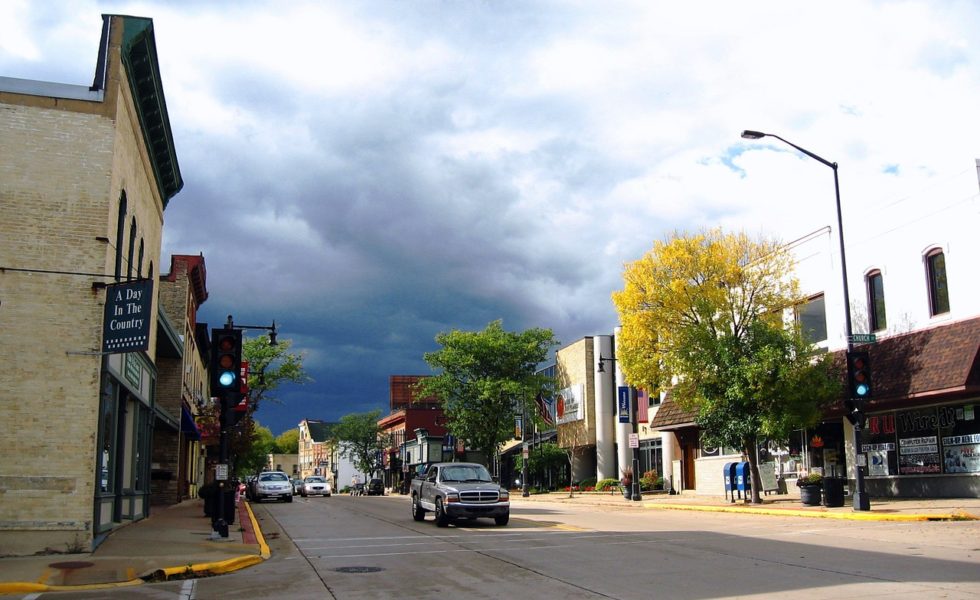Hey, Didn’t Rural America Invent ‘Social Distancing’?
Posted on April 30, 2020

There’s a brittle beauty to this year’s spring. Amid the swaying daffodils, cotton clouds, and already roaring tractors and dust-shaking planters hides a deadly virus with a special fondness for those of us in rural America.
In fact, rural America is perfectly primed for Covid-19, according to any epidemiologist worth their student loans. The virus finds its weakest, best targets in elderly Americans with “co-morbidity” factors like diabetes or heart disease.
That’s us.
“Less than 14% of the nation’s population is over 65 years,” noted Megan L. Srinivas in the April 7 Des Moines Register, “but this group represents over 18% of the population in rural areas.”
Those numbers, explains Srinivas, “an infectious disease doctor living in rural Iowa,” have her “terrified… and shaken.” The reason is simple; she knows the dark math behind them.
For example, if rural Iowa or rural anywhere gets hit by Covid-19 as hard as New York or Chicago, it will be more lethal because while rural America is home to 20 percent of all Americans, it contains only nine percent of the nation’s hospitals, two percent of its hospital beds, and one percent of its intensive care beds.
And that’s the good news.
The bad news is the numbers get worse. Iowa, for example, “has only 280 ventilators for its more than 3 million residents.” If current predictions hold, “… up to 150,000 Iowans may need those mere 280 ventilators over the next 18 months.”
Note she said months, not weeks.
Age isn’t the only sweet spot in rural America for Covid-19. We country dwellers are poorer than our metro counterparts and many of our jobs—whether well-paying, average or minimum wage in schools, pubs, restaurants, or grain elevators—are now gone, going, or facing cutbacks in paid hours.
That means a higher percentage of rural Americans will face difficult months, even years, ahead in paying for housing, food, and, Lord have mercy, life-and-death health care choices.
And don’t believe the blowhards who claim our open spaces and thin population will provide a protective buffer to keep farm and ranch communities safe. It won’t.
In fact, “8 in 10 U.S. counties “are under lockdown orders,” the Wall Street Journal reported April 6. “They represent nearly 96% of the national output.”
A day later, the New York Times reported that America’s countryside was on the same path the newspaper’s hometown was a month ago: “This week, the case rate in rural areas was more than double it was six days before.”
Equally troubling is that as this snowball rolls into rural America, its growing size will minimize news of other critically important choices that require rural input and monitoring. For instance, U.S. Secretary of Agriculture (USDA) Sonny Perdue is sitting on a $50-billion mountain of bailout money for… whom? How? When?
Now would be a good time to have the expert advice from the more than 200 ag economists who left USDA’s Economic Research Service (ERS) after Perdue ordered most out of Washington, D.C. in 2019. Since then, according to Politico, “only 41 out of 233 [ERS] positions” vacated under Perdue’s purge had been filled by mid-January.
Given its recent history, there’s little evidence to believe USDA will do better with fewer experts as one of the most wide sweeping, most deadly health and economic calamities slices through rural America like a scythe.
And, of course, all of this is doubly harsh and demoralizing as it hits farms, ranches, and rural communities at the height of planting, calving, and school field trips, proms, and graduations.
But we rural Americans know how to defeat this. We must stay smart, stay safe, and stay home. In short, social distancing.
Which, by the way, we know how to do because we invented it.
© 2020 ag comm

Alan, Sober facts that you write. So corn is under $3 locally and beans well under $8. You predicted it even before COVID 19 and the oil war hit. Looks like we are well on our way to $2 corn and $5 beans– or even lower. We just are about to finish up spring planting of 1200 acres of corn and 1200 acres of beans. Probably should have left the planter, fertilizer rig, and sprayer in the shed and planted nothing. I don’t think we’ll get our expenses back this year. Hell, we didn’t last year!!!!